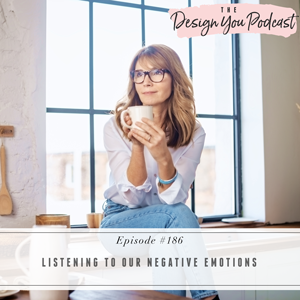
We always have highs and lows throughout our lives, but sometimes we notice the emotion more than usual. And when we consider that the world has been on a bumpy rollercoaster of emotion since the pandemic began, it’s no wonder that negative emotions like sadness, depression, and fear have affected us deeply.
I’ve been thinking about this a lot over the past week. Now, finding balance in all this negativity doesn’t mean we have to be happy 100% of the time. Negative emotion alone doesn’t necessarily mean that anything is wrong. But we have to be honest and acknowledge what we’ve been through since the start of 2020, and I’m showing you how to start this process on today’s show.
Tune in this week to discover how to listen to your negative emotions in a way that helps you live a more enjoyable life, even during the difficult times. I’m sharing why life is supposed to be a 50-50 balance of positive and negative, and what you can do to start embracing that balance in your own life.
If you want help creating a business with thriving revenue streams so that you can design the life you really want, get on the waitlist for the next round of my Design You Coaching Program. Inside, you’ll get access to a whole new course where I share my complete design system with you. You’ll receive every template, tool, SOP, worksheet, downloadable, video, and more that I have created and used myself, and receive a complete step-by-step for how to run your full-service projects.





